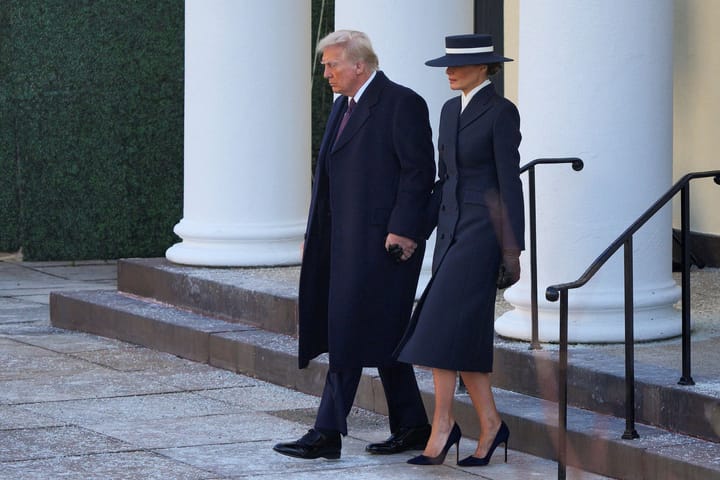TikTok Exodus: Xiaohongshu Becomes Unexpected Haven for US Users

A sudden influx of English posts transformed Xiaohongshu (also known as Little Red Book) into an unexpected "English corner" overnight. On January 14th, Chinese users opening the app found their feeds flooded with posts written in English, prompting a need for impromptu English reading comprehension. The app, now seemingly populated by foreigners with US-based IP addresses, left many Chinese users bewildered, questioning, "Who am I? Where am I? Where has this app taken me now?"
Meanwhile, across the Pacific, Xiaohongshu has unexpectedly topped the US App Store download charts, potentially becoming the first app with an entirely Chinese name to reach the number one position in the US market.
This news triggered a rally in Xiaohongshu concept stocks in China, with companies like Yaowang Technology, Yinli Media, and others experiencing significant gains.
Ironically, this sudden surge in popularity appears to be a consequence of TikTok's legal battles in the US. Xiaohongshu seems to be a passive beneficiary of the situation.
On January 10th, the US Supreme Court accelerated the review of a bill that could force the sale or ban of the short-video social media platform TikTok nationwide. The Supreme Court heard arguments on the TikTok ban, with a majority of justices indicating that national security concerns supersede freedom of speech, leading to the ban being upheld.
As a result, TikTok could be forced to shut down in the US on January 19th if ByteDance refuses to sell it. ByteDance has already publicly declined to sell TikTok. This situation has led to the emergence of a new term "TikTokRefugee," describing users migrating to other social platforms due to the impending US ban.
Xiaohongshu has become a major beneficiary of this user migration, with these new users identifying themselves as "TikTok refugees" from the US.
Sources inside Xiaohongshu reported to Phoenix Network Technology that internal views on this event are still divided, with the challenge of globalization outweighing the excitement of increased traffic. Some view it as a sudden, accidental event.
This isn't the first time Xiaohongshu has seen an influx of traffic from TikTok. The "Foreigners Take Advice" series also brought a surge of international users, though internal data analysis showed that it had little impact on daily active users (DAU).
While the exact number of new international users and the corresponding post volume remains unclear, the hashtag #TikTokRefugee has already amassed over 70,000 posts. Some analysts suggest that this is not the same as Xiaohongshu going global.

For many in the West, Xiaohongshu has become a topic of significant interest. According to Forbes, Xiaohongshu, also known as Rednote, is a social media platform similar to Instagram, but focused on product reviews and lifestyle content, rather than just connecting people. It has experienced strong growth among young Chinese consumers, acting not only as a platform for sharing photos and videos but also as a search engine for everything from restaurant recommendations to global news.
The Wall Street Journal describes Xiaohongshu as a hybrid of Instagram and Reddit, a “lifestyle bible.” Users frequently seek advice on everything from beauty and shopping to travel and life hacks, using it to find restaurant reviews, interest classes for children, how-to guides, and travel tips.
Unlike the often superficial feedback of Instagram ("you look great!") or the harshness of online comments ("you should change your dark skin"), Xiaohongshu’s “take advice” feature can provide more constructive feedback. Xiaohongshu users offer advice on fashion, fitness, and even use photo editing skills to enhance the images of those seeking help.
The welcoming community atmosphere on Xiaohongshu has facilitated the quick integration of "TikTok refugees". Some American TikTok users have expressed concern about not being accepted when posting in English, since the majority of Xiaohongshu's content and users are Chinese.
While Xiaohongshu was initially conceived as a shopping guide, its product and content have always been designed for a Chinese-speaking audience, with little to no adaptation for international users. This inherent difficulty poses challenges to effectively engaging international users.
However, Chinese users on Xiaohongshu have exceeded expectations with their warm welcome. They've embraced new users, initiating conversations on topics ranging from hairstyles and fashion to pets and daily life, and even seeking help with their English homework.
While TikTok is the overseas version of Douyin, the reason "TikTok refugees" didn't go to Douyin lies in technical limitations. Douyin/TikTok has different content pools and servers in different regions. While international phone numbers can register for Douyin, the app is not directly downloadable from the US App Store. It would require users to switch to the Chinese App Store, a complicated process.
Xiaohongshu, which began as a global shopping experience sharing platform, has no content partitioning to allow for cross-border communication. This makes downloading and registration relatively simple.
Essentially, if Douyin is a game with multiple servers, Xiaohongshu is a global server game, making it much easier for users to migrate.
However, TikTok and Xiaohongshu are fundamentally different. TikTok is a primarily short-form video media platform, while Xiaohongshu is a community platform featuring text and short-form videos. While Xiaohongshu has attracted some TikTok users, differences in language, content consumption habits, and community culture make it difficult for them to truly integrate and may affect their retention rates.
Currently, Xiaohongshu is still primarily seen as a Chinese community overseas, and its appeal to US users might not be strong enough. The lack of content catered to them, along with language barriers, makes it challenging for foreign users to immerse themselves. Though some users use translation tools, this is not ideal and may not lead to long-term engagement.
Moreover, the future of the TikTok ban remains uncertain.
Recently, Reuters reported that two US Democratic congressmen are urging Congress and the President to extend the deadline for ByteDance to sell TikTok's US assets. Senator Edward Markey plans to propose legislation extending the deadline by 270 days, while Representative Ro Khanna has called for a pause on the ban, stating that it would impact the freedom of speech of 170 million Americans.
Xiaohongshu reaching the top of the US App Store is merely an unexpected side effect of the TikTok ban. The ultimate fate of TikTok is the core of this story.


